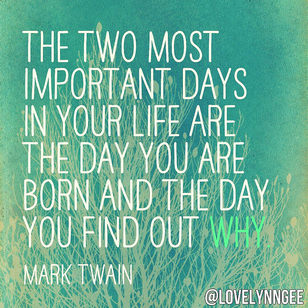 Ok. I’m going to be really honest and go against the grain here. I’m not sure why my profession landed on the word “coach” as our collective title. First, when I hear coach, my brain often defaults to football or basketball. Being that we share the title of athletic coaches, it obviously has created some confusion. Second, the word coach does not really do “what we do” justice. Those of you in the profession know what I mean. What happens in coaching sessions is amazing to witness! Coaching believes that each client carries deeper levels of wisdom and knowledge, about what is best for them, within. I call this, ‘the wisdom waiting within.’ Yet, we aren’t guides, or mentors per se. Well, coaching it is! A Peer-Regulated Industry Coaching is a peer-regulated industry, just like yoga instructors, personal trainers, Search and Rescue and consultants. This means that associations, or federations, come together to set and uphold standards. However, those standards are not mandatory to practice, unless organizations or individuals choose to require a certain level of training or certification. Here is a breakdown:
What does it mean for coaching that we fall into the peer-regulated industry? First, it means there are many people that call themselves coaches that are not trained, and/or not really coaching. Many of them are consulting, or perhaps guiding people. I was a health coach for years. That was my hired title. However, we were hired to give people direction, teach them how to eat healthier and provide guidance on a work-out routine. 10% was getting clients to their own answers and 90% was giving them the must needed direction and information needed to act on. While healthful tips and education is highly useful to give people that are missing valuable information, this is technically not coaching. Essentially, we were Health Consultants and I could not use the majority of my hours for coaching re-certification. How do I find a qualified coach? It is good to seek a trained coach, who knows the differences and the importance of when to engage a client’s inner knowing and when to provide a resource. Many training schools are accredited by the International Coaching Federation (ICF). The ICF is the longest standing standard setter and works hard to ensure quality is maintained in our field. If a coach graduated from an ICF accredited school, then you know their program met solid standards. Make sure you interview the coach to see if they are a fit for you. Each coach is highly unique. How do I find a qualified training institute? First, look for accreditation, or approval. ICF is the best regarded accrediting body in the coaching world. If you wish to just add coaching skills to a full-time job, you may wish to pursue a shorter, more basic training. The ICF has a level of ACSTH, or Approved Coach Specific Training Hours for this first level. These programs are typically around 60 hours. If you wish to add transformational coaching to a current practice, business or become a full-time coach, then I recommend an ACTP, or Accredited Coach Training Program by the ICF. These programs are longer and prepare you for the professional level credential. This level prepares you to become a masterful coach. |
Archives
June 2022
Categories
All
|

 RSS Feed
RSS Feed